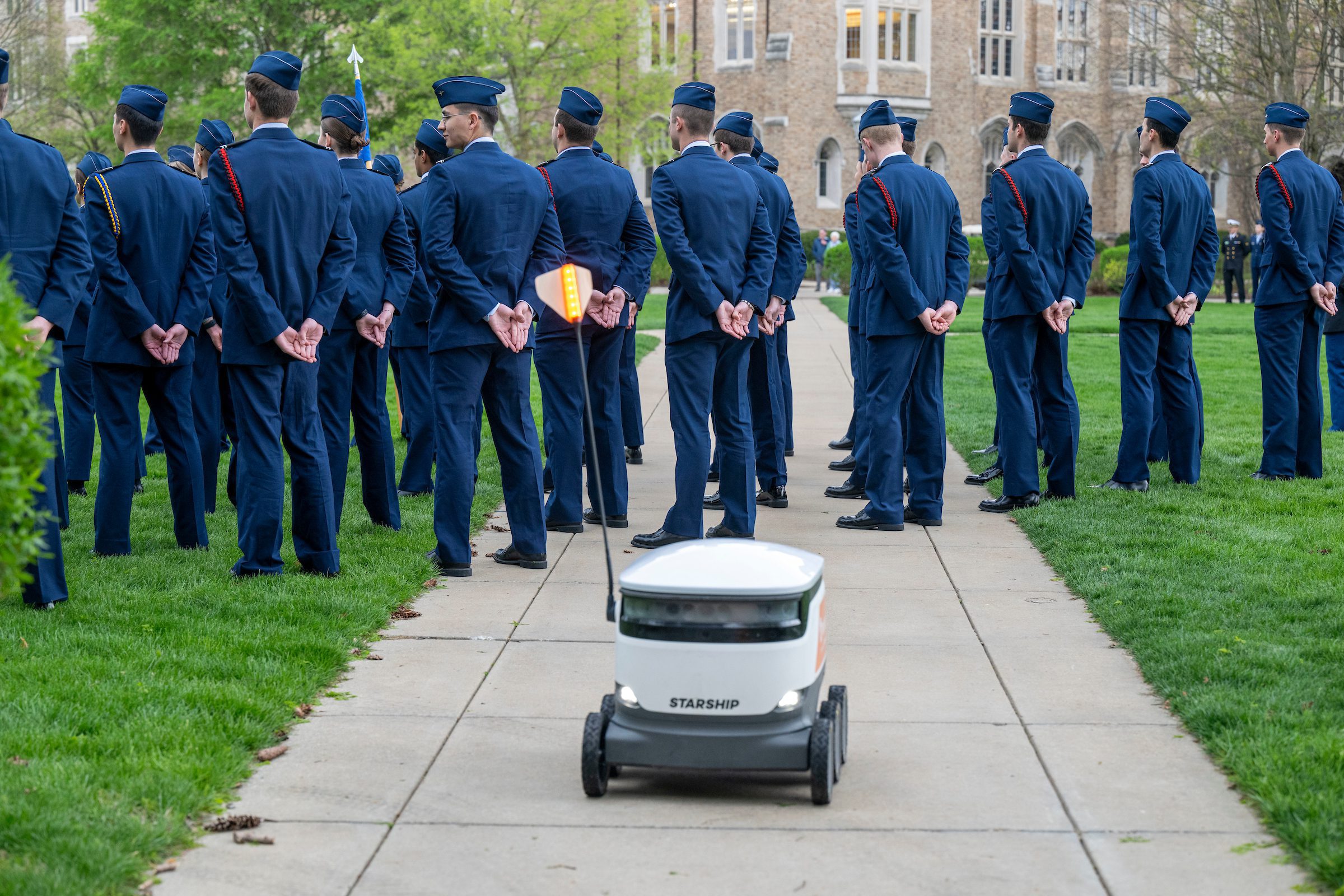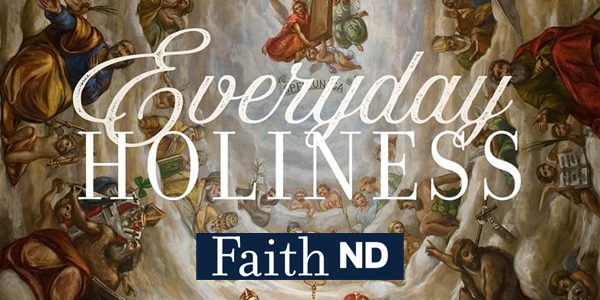Where We’re Going: The Global Citizen – Campus Viewpoint
Subscribe to the ThinkND podcast on Apple, Spotify, or Google.
Featured Speakers:
- Scott Appleby, Marilyn Keough Dean; Professor of History, Keough School of Global Affairs, University of Notre Dame
- Viva Bartkus, Faculty Director for the Meyer Business on the Frontlines Program; Associate Professor Management & Organization, Mendoza College of Business, University of Notre Dame
- Ray Offenheiser, Director of the McKenna Center for Human Development and Global Business
- Marya Lieberman, Professor of Chemistry and Biochemistry, College of Science, University of Notre Dame
The first session of Where We’re Going: The Global Citizen began with moderator Scott Appleby defining integral human development, saying to be a global citizen, one must recognize the dignity of the human person and also actively seek to “advance development that takes that dignity seriously.” The guests selected for this event were members of the Notre Dame community who have dedicated much of their research to the pursuit of upholding the dignity of persons around the world.
During introductions, Viva Bartkus described her years spent with guerillas in different countries, and then the decade she spent working in the world of business. She eventually combined her research experiences with her industry expertise to establish Business on the Front Lines (BOTFL), an initiative that seeks to restore dignity to citizens of post-war countries through work. Ray Offenheiser then presented his own story, in which his interest in international development led him to be a catalyst for action on a range of issues. In what he considers both his career and his vocation, he participated at some of the highest levels in global organizations. Lastly, Marya Lieberman explained how the connections she made and the time she spent listening to others allowed her to understand global problems that she was capable of helping alleviate. Specifically, the falsification of pharmaceuticals in developing countries awaited a solution that her scientific background could easily contribute to.
Each of these members of the campus community has fully embraced the role of a global citizen through the work they do for others. Appleby asked the guests to elaborate more on the impact of their work in both local and global communities. Offenheiser began by articulating how he sought to use the Pulte Institute endowments to encourage Notre Dame faculty to conduct “interdisciplinary research on topics of contemporary global importance,” with a large focus on the underprivileged and underserved. Lieberman continued with the sentiment of helping those who cannot help themselves by explaining that her project aimed to allow countries to analyze drugs and detect fake ones more rapidly. Lastly, Bartkus spoke of the dual impact of BOTFL, which has helped find more than 10,000 jobs for those in need and also led students to be touched by the lives of those they help.
In affirming the mission of BOTFL, Bartkus emphasized that imagining and creating common ground must be done together, not separately. Lieberman agreed, saying that empathy is part of our nature and “when something is unfair, we react to [it] viscerally.” Next, Offenheiser read and discussed the six questions on which the Pulte Institute judges their success. Half of the questions specifically asked how the Institute was serving the communities it overlaps with, and the remaining three addressed building avenues for change and making a difference. A theme of the interconnectedness of humanity emerged throughout these six questions and the testimonies that came from Bartkus and Lieberman before them.
Compiling a few of the audience questions, Appleby touched on the idea of interconnectedness in his question about how global citizenship aligns with Catholic Social Teaching. He was the first to offer an answer, citing history to assure the audience that “Catholic Social Teaching doesn’t exclude thinking globally.” Bartkus added that we must learn to celebrate the differences in our common humanity so that we recognize the separate and collective citizenship of each person. Affirming that we live in an interdependent world, Offenheiser shared that “citizen” alludes to a certain level of reliance, which could indeed exist on a global scale. Tying everyone’s points together, Lieberman concluded that humanity needs various areas of expertise to complement and collaborate with one another.
- Integral human development exists in a society when the intrinsic dignity of the human person is central to social life and upheld by the law.
- Fake pharmaceuticals are worth around $30 billion dollars a year because there is no global system to monitor the quality of drugs. Countries need to have the ability to analyze drugs quickly for the sake of their citizens.
- BOTFL helps students enhance their problem solving skills and helps those in developing countries use business to achieve aspects of the human flourishing that every person is owed.
- The Pulte Institute aims to be a highly effective leader in the field of serving the less fortunate. It uses grants to make a difference for poverty issues at home and abroad.
- As global citizens, we have to think universally about how we live together as citizens of the planet.
- “It’s easy to say we’re for human dignity, but how do we … advance development that takes that dignity seriously?” — Scott Appleby, 8:31
- “My observation from service in the field is that there is incredible dignity in a good day’s work.” — Viva Bartkus, 34:59
- “Along the way, our graduate students [in BOTFL] learned viscerally that it is a privilege to use their capabilities to serve others.” — Viva Bartkus, 33:48
- “Global citizenship, as an idea, does recognize that we live in an interdependent world, and it does suggest the idea that my security relies on your security.” — Ray Offenheiser, 52:23
- “How to solve [global] problems depends on them being recognized as problems, and then acted on by people who have the proper authority.” — Marya Lieberman, 55:00
Related Content
Photoessay: “We Love April!”
We Love April! by University of Notre Dame on on Exposure
Read ArticleShannon Sharpe/Katt Williams, The Black Impact on the NFL Super Bowl & Taraji P Henson
In the first episode for Season 8, Isaiah and Tykiera talk about the Shannon Sharpe/Katt Williams Interview that took the internet by storm at the beginning of the year as well as...
watch videoEveryday Holiness: John Cavadini
Dr. John Cavadini, director of the McGrath Institute for Church Life and professor in the theology department at the University of Notre Dame, shares some of the hidden aspects...
View Event


